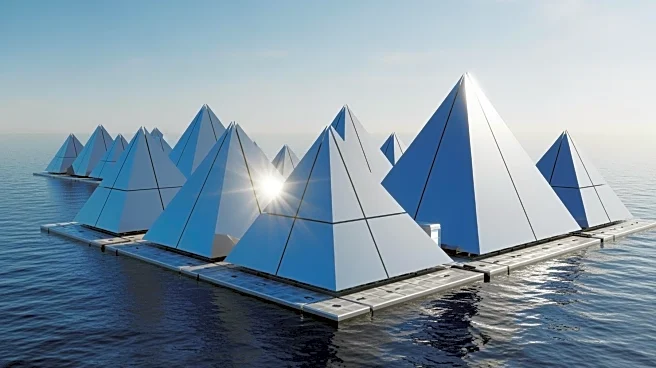What's Happening?
French firm Ciel & Terre has launched a new floating solar system called 'Fusio,' designed for large-scale projects. The system features a pyramid-inspired substructure, enhancing stability and efficiency. This design allows for improved air flow, cooling
solar panels, and increasing conversion efficiency. The system also reduces manufacturing and transportation costs, making logistics more efficient. Maintenance is streamlined through a specialized catamaran, providing safe and efficient access to solar panels and equipment. This innovation marks a significant advancement in the floating solar industry, which is expanding globally, including in the U.S.
Why It's Important?
The development of large-scale floating solar systems like Fusio is crucial for expanding renewable energy capacity without occupying valuable land space. Floating solar panels can be installed on bodies of water, conserving land and reducing evaporation, which is beneficial in water-stressed areas. This technology supports the transition to sustainable energy sources, contributing to climate change mitigation efforts. The U.S. has numerous potential sites for floating solar, offering opportunities for energy diversification and economic growth in the renewable sector.
What's Next?
The floating solar industry is expected to grow, with more projects being developed globally. In the U.S., there is potential for significant expansion, given the availability of suitable sites. Future developments may focus on enhancing the efficiency and durability of floating solar systems, as well as integrating them with other renewable technologies. Policy support and investment in research and development will be crucial for advancing this sector.
Beyond the Headlines
Floating solar systems present unique challenges and opportunities, including environmental considerations related to aquatic habitats. The design and implementation of these systems must balance energy production with ecological preservation. Additionally, floating solar can play a role in decentralized energy systems, providing power to remote or off-grid locations, enhancing energy security and resilience.
















